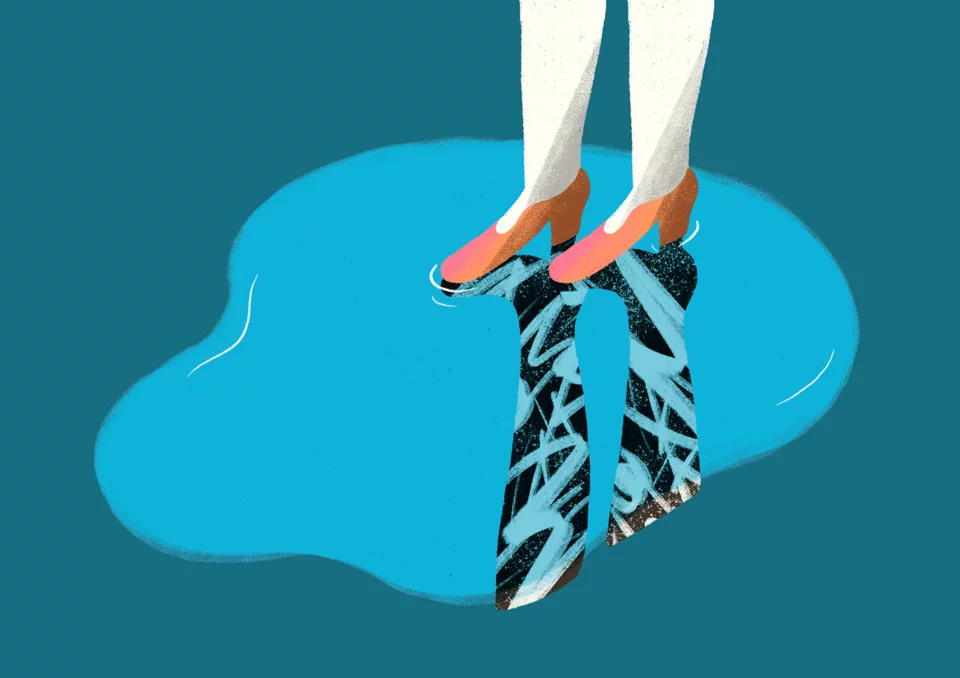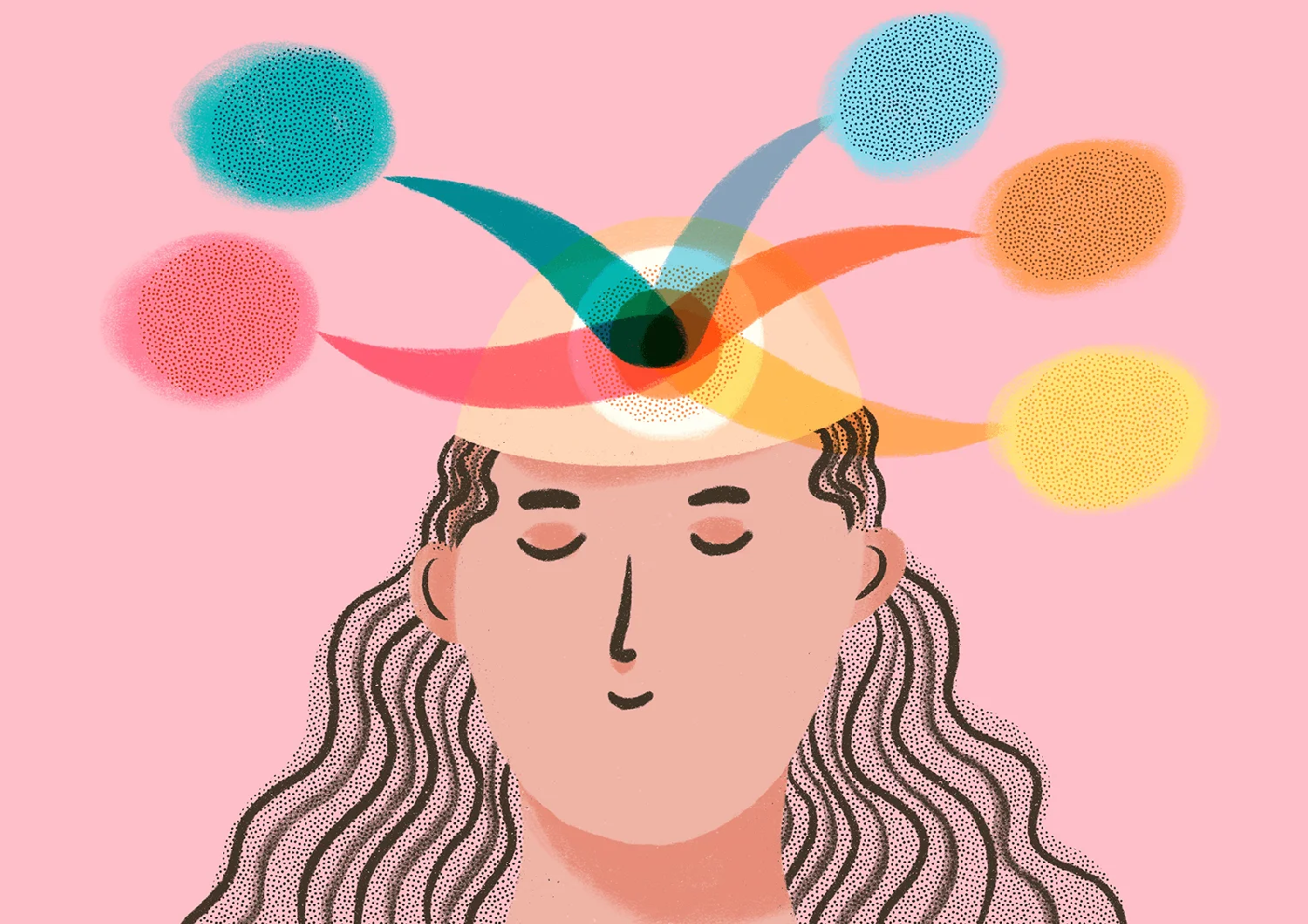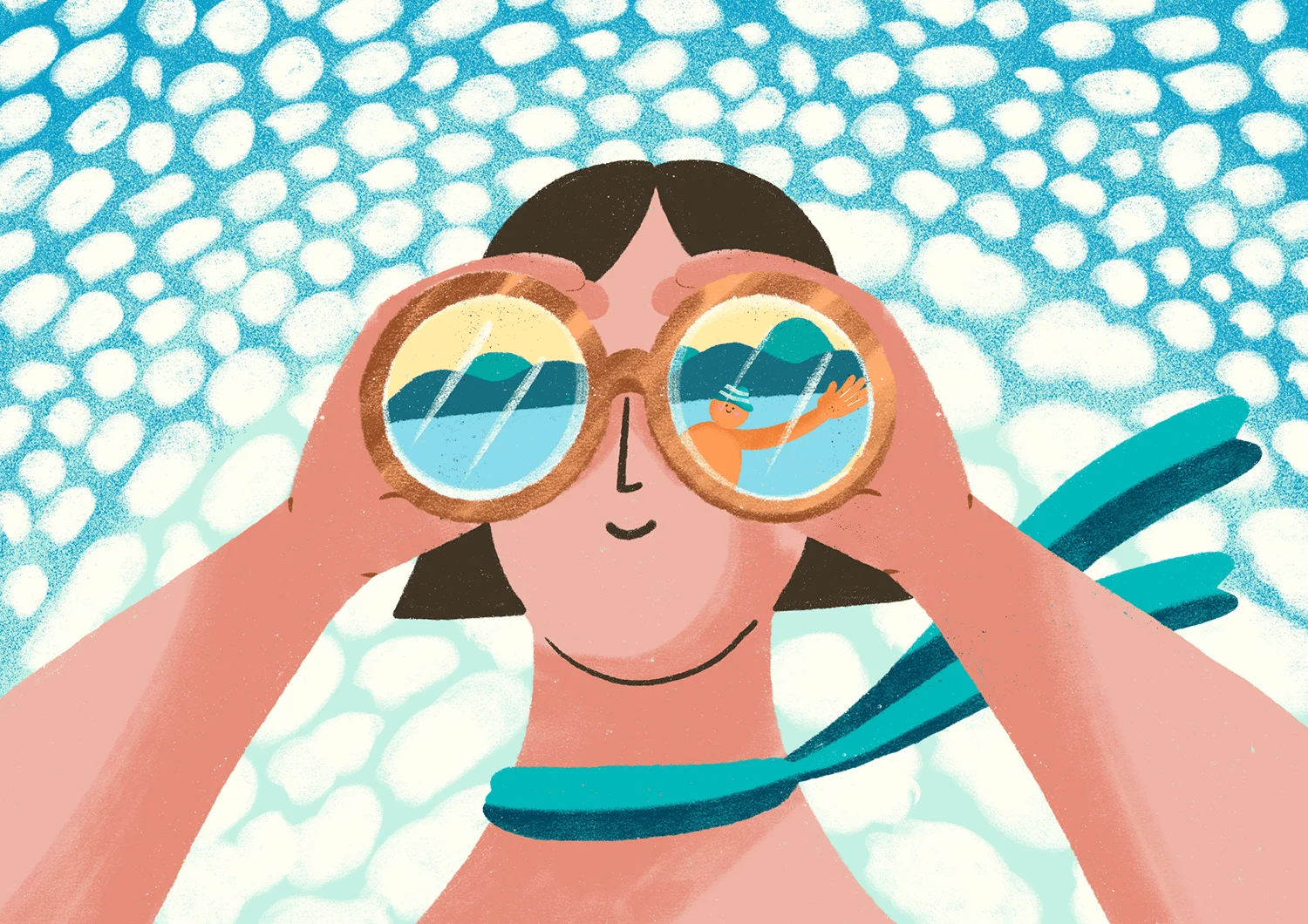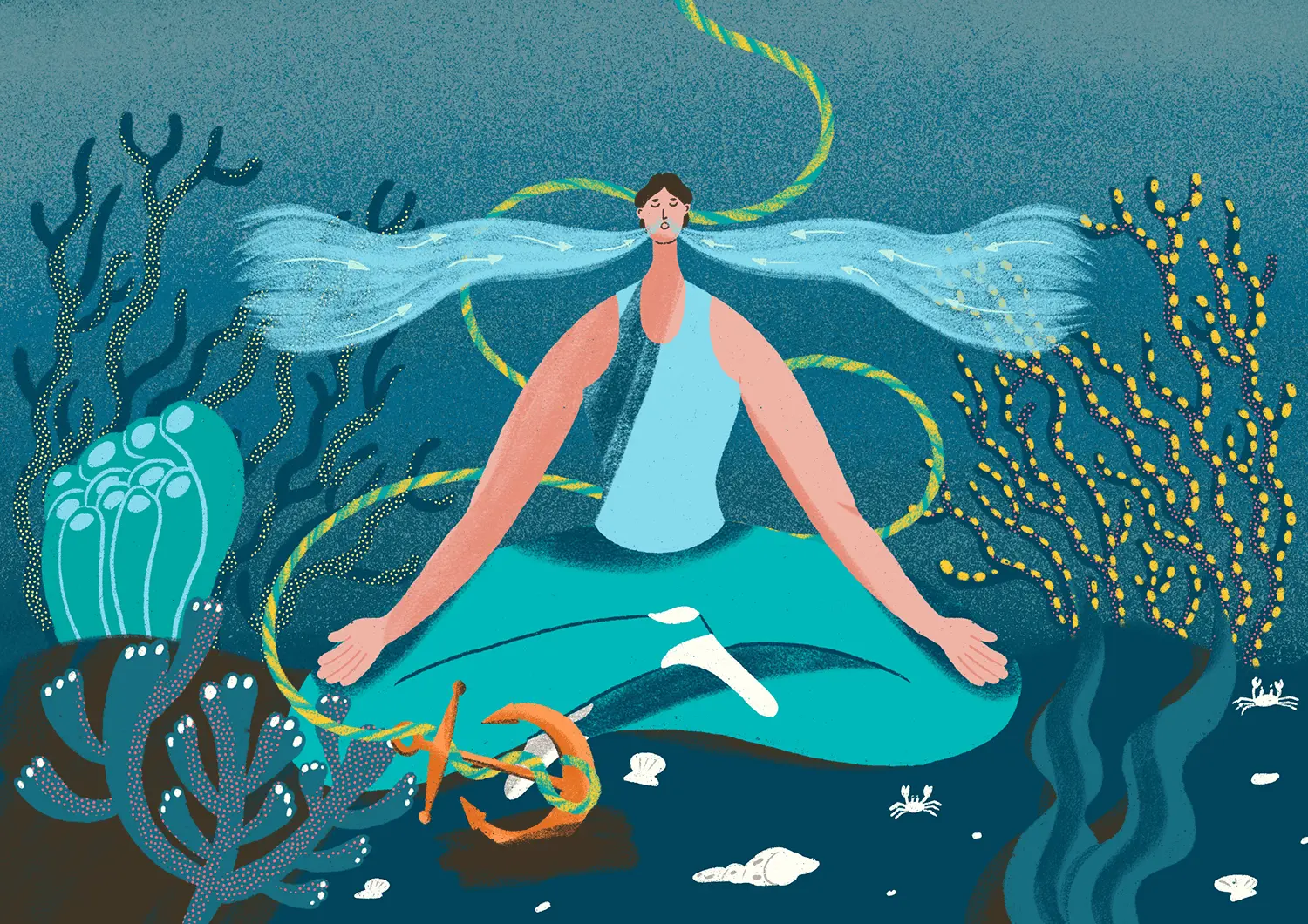In the lyrics of Charmaine Fong’s Cantopop song “OMLBMH”, it translates “Be mindful of minor thoughts, don’t let setbacks, frustrations, and fears control you as it will leave tomorrow”. The lyrics talk about how we have various thoughts that fluctuate and change. When on the low, be careful of diving deep into the abyss of our thoughts and try not to lose the hope of surviving and making it through. When a minor thought arises, we might have a self-critical voice which further stirs up our emotions.
Imagine this inner voice keeps whispering to you, from the moment you open your drowsy eyes in the morning, work hard in your office, until you get off work and gasp with enjoyment in your own personal space— Have you ever noticed what this voice is saying? When you feel discouraged, does it give you confidence and encouragement? Or does it look down upon you and make you feel even worse?
As we are our strongest critic, we should get to know this part of us better, feel and understand it, which will enable you to know how to relate with this part of you.

In psychology, self-criticism refers to having a negative view and opinion of ourselves, feeling shameful and guilty, and even scared of not reaching or achieving our own expectations nor getting recognition. We may think that only with criticism will we improve; On one hand, introspection leads us to self-understanding and learning, but on the other hand, we must be careful of falling into the trap of overthinking and taking subjective self-criticism as facts and reality.
For example, when we make a mistake at work, the thought of “I am so useless!” or “I always make mistakes!” may appear. Although it is only a subjective idea and thought, we can very easily misinterpret and equate the thought as a fact. It can even lead to self-fulfilling prophecy, which is when our interpretations and expectations of the events actually lead to corresponding results and outcomes. For example, as a person is preparing for a job interview, s/he may feel scared and worried that s/he will not be able to meet the job requirements. During the interview, this inherent and built-in thought brought her/him immense stress, affecting her/his performance, and this experience may further reinforce and strengthen the thinking that “I am neither competent nor qualified for this job”.
The Italian author Giovanni Boccaccio once said, “People tend to believe the bad rather than the good.”; According to psychological research, human beings are more sensitive to negative news and the time negative news lingers in the mind is significantly longer than positive ones. This phenomenon is known as negativity bias.
It is important not to equate our thoughts with reality, to see inner self-criticism as a subjective opinion, and the possibility that others’ reactions towards us are not necessarily related to us but instead a reflection of what the person is currently going through. Try to learn to become an observer of our own thoughts instead of being led by them.
To practice this, let’s try the 6-minute meditation practice together, observe the natural rise and fall of thoughts, and learn to not be blindly led by them.
Mindful Observation of Thoughts
(Ting)
Now we will do an exercise for observing thoughts. You may begin once you are ready.
Find a comfortable position and sit upright, with feet on the ground. You may close your eyes or lower your gaze. Sense the contact between your feet and the ground, and that between your hip and the chair. Notice the sensations of your body being supported.
Now slowly bring your attention to the breath. It might be in the nostrils or in the abdomen. Feel the sensations of your breath, inhale and exhale. Breathe naturally and you don’t need to control your breath.
Now you can bring your attention to the thoughts in your mind. Imagine that you’re observing the clouds in the sky and the fallen leaves drifting on a river, or looking at a television screen. You may also observe your thoughts directly.
These thoughts might be images or sentences, might be about the past or the future. Maybe you have a lot of thoughts, or you don’t have any thoughts. Pay attention to the emergence, change, and disappearance of thoughts. You don’t need to analyze these thoughts, simply observe them. You may say to yourself “Oh, I have these thoughts at this moment.” If you are carried away by these thoughts or become absorbed in thoughts, you can slowly bring your attention to your breath, then observe your thoughts again gently once you’re ready.
Some thoughts might be pleasant, while some might be unpleasant. We don’t need to grab them or push them away. Simply notice the emergence, change, and disappearance of thoughts, like the clouds in the sky, the fallen leaves drifting on a river or the changes on a television screen. You don’t need to analyze these thoughts, simply observe and you may say to yourself “Oh, I have these thoughts at this moment.”
Now, gather your attention to your breath and sense each in breath and out breath.
This is the end of the practice. When you hear the bell rings, you may slowly open your eyes and wiggle your fingers and toes.
(Ting)
During the exercise, did you notice the thoughts? As mentioned earlier, our thoughts are not necessarily facts nor reality. The next time you have self-critical thoughts, I invite you to observe them through meditation, and try to allow yourself to not be caught up in them.
If you are interested in learning more about mindfulness, you are welcome to register for free as a “TourHeart+” member and chat with our virtual companion. Chatbot topics such as “Mindfulness – “Hello, Where are you?”or “Reshaping Our Response to Stress”, embark on an interactive mindfulness experience, guide you to observe and reshape your habits in responding to your thoughts. For members with mild to moderate emotional distress, you can refer to cognition and behavior (for overthinking) Lesson 5 (be kind to yourself) and try to have a friendly conversation with yourself.
In “Beyond Good and Evil”, the philosopher Nietzsche wrote “If you gaze long into an abyss, the abyss will gaze back into you.” When you are fighting against darkness, the darkness is also silently affecting you; if you cannot withstand it, you may be drawn into the darkness. Applying it into self-criticism — a moderate amount of introspection may be beneficial for growth and development; however, do not forget to treat yourself as your best friend, be gentle to yourself, and try not get caught up by the self-critical voice.

References:
Blatt, S. J. (2004). Experiences of depression: Theoretical, clinical, and research perspectives. American Psychological Association. https://doi.org/10.1037/10749-000
Powers, T. A., Koestner, R., Zuroff, D. C., Milyavskaya, M., & Gorin, A. A. (2011). The effects of self-criticism and self-oriented perfectionism on goal pursuit. Personality and Social Psychology Bulletin, 37(7), 964–975. https://doi.org/10.1177/0146167211410246



